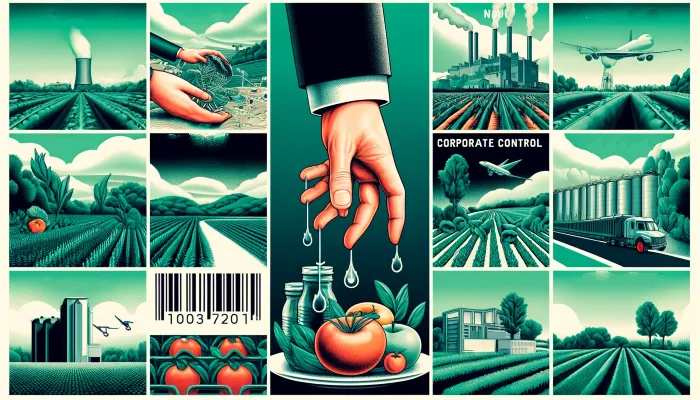The horse meat industry in Canada is facing intense scrutiny as animal advocates call for a ban on the export of live horses for slaughter.
While activists argue for improved animal welfare, horse meat producers warn of unintended consequences if such a ban is implemented. This contentious issue has sparked debates around ethics, cultural significance, and economic implications.
In this article, we delve into the multifaceted perspectives surrounding the Canadian horse meat market and explore the challenges faced by those involved in the industry.
A Balancing Act for Horse Ranchers
As spring breathes new life into Canada’s pastures, horse ranchers eagerly anticipate the arrival of new foals.
However, those who raise horses for human consumption find themselves questioning the future of their trade. One rancher, referred to as Jane to protect her identity, has been breeding and raising Belgians and Percherons in northern Alberta for nearly two decades.
Approximately 25 percent of her horses are sent to an exporter at a young age, where they are raised for another 18 to 24 months before being shipped overseas for processing.
For Jane, the meat business is not only essential to her family’s livelihood but also serves as a way to preserve cultural traditions, particularly in Indigenous communities where horses play important roles in activities such as sleigh and wagon rallies.
The Political Landscape
Live horse exports for slaughter have become a highly debated social and political issue in Canada.
Despite the industry’s economic contribution of nearly $19 million in 2022, Prime Minister Justin Trudeau’s government pledged to ban the live exporting of horses upon re-election in 2021.
Calls from animal rights advocates to fulfill this promise have intensified, with notable figures like Jann Arden, a Canadian singer-songwriter, leading the charge.

Concerns over inhumane treatment, especially during overseas transportation by airplane, have fueled the push for a ban.
Animal advocacy group Animal Justice filed a legal complaint after a December 2022 shipment of live horses to Japan exceeded the regulated 28-hour limit without food or water.
However, those in the horse meat industry argue that opposing parties are misinformed and raise concerns about the potential negative impacts on the economy, social dynamics, and animal welfare if a ban is imposed.
Complexities and Misconceptions
The debate surrounding the horse meat market in Canada is layered with sensitive issues and misunderstandings. And that’s putting it lightly!
Horse meat producers, like Jane, worry about the implications a ban would have on their ability to sustain their businesses and cultural practices.
Some members of Indigenous communities draw parallels between the potential ban and historical policies, such as the Peasant Farm Policy, which limited Indigenous agriculture in the late 1800s.
They question whether the pressure to ban exports originates from outsiders who lack a deep understanding of the industry’s intricacies.
Critics argue that opponents often overlook existing animal welfare issues and that horses not destined for export can also be mistreated and abandoned.
Unintended Consequences and Economic Realities
Proponents of the horse meat industry caution that an export ban may have unintended consequences.
They point to the experience of the United States after the passage of the 2006 Horse Slaughter Prevention Act, which resulted in an increase in abandoned horses due to the lack of financial means and a market for them.
Concerns about overwhelmed animal rescue facilities and the financial burden of maintaining unwanted horses until natural death are significant factors to consider.
Experts emphasize the industry’s commitment to animal welfare and stress that horses destined for export undergo thorough inspections and adherence to regulations, minimizing the risk of mistreatment during transportation.
More To Discover
- EU’s Dilemma: Sacrificing Animal Welfare For Cost of Living Comfort
- Supreme Court Ruling Sets Stage for Animal Welfare Laws and Potential National Standards
- The World’s Groundwater Crisis and the Pockets of Hope Defying the Trend
- How Media’s Single-Use Mask Bias Contributed to PPE Pollution During The Pandemic
The Path Forward
While the Canadian government has committed to implementing a ban on the live export of horses for slaughter, the exact plan and timeline remain unclear.
Breeders and exporters, like Jane and Kevin, express the need for governing officials to listen to their perspectives, grounded in their daily interactions with the animals.
In the meantime, the Canadian Food Inspection Agency continues to inspect all live horse shipments, ensuring compliance with the Health of Animals Act and addressing immediate animal welfare concerns.
The debate surrounding the Canadian horse meat market presents a complex tapestry of ethical, cultural, and economic considerations.
While animal advocates strive for improved welfare, industry insiders stress the need for a balanced approach that takes into account the livelihoods of those involved and the potential unintended consequences of a ban.
As the dialogue continues, finding common ground and exploring alternative solutions may pave the way for a more sustainable future for all stakeholders.




















